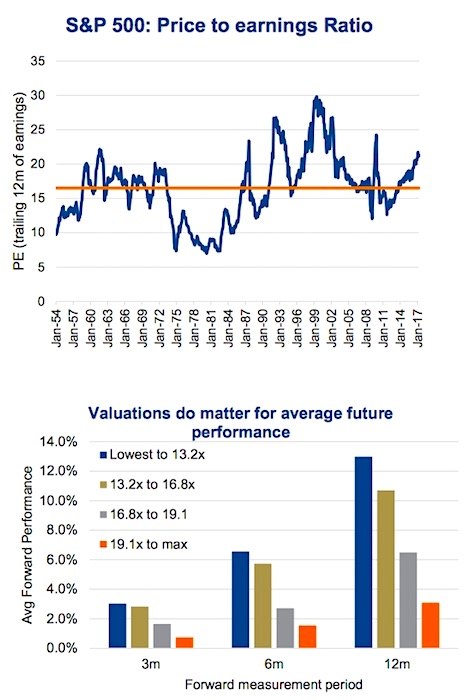Delving Into The World Of Agatha Christie's Poirot: A Critical Examination

Table of Contents
The Enduring Appeal of Hercule Poirot
Hercule Poirot's enduring appeal stems from a unique blend of characteristics that make him both fascinating and relatable. His eccentricities—the meticulous grooming, the insistence on order, the theatrical pronouncements—are instantly recognizable and memorable. He's famously reliant on his "little grey cells," symbolizing his superior intellect and his methodical approach to problem-solving. However, beneath the veneer of arrogance and self-importance lies a surprising vulnerability and even a certain loneliness that resonates with readers.
What truly captivates audiences, though, is his unparalleled cleverness. Watching Poirot unravel complex mysteries, piecing together seemingly disparate clues with effortless grace, is profoundly satisfying. This satisfaction is amplified by the reader's own intellectual engagement; we are invited to participate in the puzzle, testing our own deductive skills against his.
- Poirot's meticulous observation skills: He notices details others miss, transforming seemingly insignificant observations into crucial pieces of evidence.
- His reliance on logic and deduction: Poirot's methods are grounded in rational thought and careful analysis, providing a satisfying sense of order in the chaotic world of crime.
- His theatrical personality and memorable catchphrases: His dramatic pronouncements and distinctive mannerisms add to his iconic status and make him instantly recognizable.
- The satisfaction of the reader/viewer in witnessing his problem-solving skills: We revel in his intellectual triumph over deception and cunning.
- Poirot's vulnerability and hidden depths: Beneath the surface lies a character with complexities and insecurities, adding layers to his appeal.
A Critical Analysis of Poirot's Methods
Poirot's investigative techniques are a fascinating blend of psychology, observation, and manipulation. He employs masterful questioning techniques, subtly guiding suspects towards revealing incriminating information. He possesses an uncanny ability to read people, discerning hidden motives and subtle lies. His attention to detail is legendary, allowing him to identify inconsistencies and contradictions that others overlook.
However, his methods are not without their flaws. While often brilliantly effective, they occasionally rely on a degree of luck or coincidence. Furthermore, his manipulative tactics raise ethical questions; the ends sometimes justify the means, leading to morally ambiguous situations.
- The effectiveness of his questioning methods: Poirot's carefully crafted questions elicit crucial information, often exposing the perpetrator's lies.
- His use of psychological manipulation: He skillfully uses psychology to manipulate suspects into confessing their crimes.
- Instances where his methods are flawed or challenged: There are instances where his deductions are incorrect, highlighting the limits of his approach.
- Comparisons to other fictional detectives: Poirot's methods can be compared and contrasted with those of other famous detectives like Sherlock Holmes.
- The role of luck and coincidence in his successes: While skill is paramount, a degree of chance often contributes to Poirot's victories.
The Evolution of Poirot Throughout the Stories
Over the course of Agatha Christie's many novels and short stories, Poirot undergoes a subtle but significant evolution. While his core personality remains consistent, his experiences shape his perspective. The impact of World War II, for instance, is clearly reflected in the darker tone of some of his later cases. He becomes more aware of the complexities of human nature, and his arrogance is occasionally tempered by a growing sense of melancholy.
- Changes in Poirot's personality over time: As he encounters more complex cases and deals with the harsh realities of war, Poirot shows emotional growth.
- The impact of World War II on Poirot's stories: The war profoundly affects the setting and tone of Poirot's later investigations.
- The evolution of his relationships with other characters: Poirot's relationships with Captain Hastings and other recurring characters evolve over time.
- How Christie's own life experiences may have influenced Poirot's development: Christie's personal experiences likely informed the subtle changes in Poirot's character and worldview.
Agatha Christie's Legacy and Poirot's Place Within It
Agatha Christie's contribution to the mystery genre is undeniable. She helped define the "Golden Age of Detective Fiction," establishing many of the conventions and tropes that continue to influence writers today. Poirot, as her most iconic creation, occupies a central place in this legacy. His enduring appeal is evident in the numerous film, television, and stage adaptations of his stories, showcasing his continued relevance in contemporary popular culture.
- Christie's influence on the Golden Age of Detective Fiction: Her innovative plots and well-developed characters set the standard for subsequent mystery writers.
- Poirot's enduring presence in adaptations and media: From Kenneth Branagh's films to numerous television series, Poirot remains a cultural touchstone.
- The comparison of Poirot to other famous detectives: Poirot's character and methods are often compared to those of other famous literary detectives, sparking ongoing debates among fans.
- The ongoing popularity of Christie's works in the modern era: Christie's books continue to sell millions of copies worldwide, demonstrating the enduring power of her storytelling.
A Final Look at Agatha Christie's Poirot
This examination of Agatha Christie's Poirot has revealed a complex and multifaceted character whose enduring appeal is rooted in his unique blend of eccentricities, intelligence, and vulnerability. His methods, while sometimes ethically ambiguous, are undeniably effective, and his evolution throughout the stories demonstrates a depth and complexity rarely found in fictional detectives. Agatha Christie’s genius lies not only in creating a memorable character but also in embedding him within a rich tapestry of intriguing mysteries that continue to enthrall readers and viewers alike. The enduring popularity of Agatha Christie's Poirot is a testament to the timeless power of a well-crafted mystery, a fascinating character, and the enduring appeal of a good old-fashioned whodunit. Continue your exploration of Agatha Christie's Poirot by picking up a copy of Murder on the Orient Express today! Or, dive deeper into the world of Agatha Christie's Poirot by exploring the many film and television adaptations available.

Featured Posts
-
 I Xronia Kakodaimonia Ton Sidirodromon Stin Ellada Mia Analysi
May 20, 2025
I Xronia Kakodaimonia Ton Sidirodromon Stin Ellada Mia Analysi
May 20, 2025 -
 High Stock Market Valuations Bof As Case For Investor Confidence
May 20, 2025
High Stock Market Valuations Bof As Case For Investor Confidence
May 20, 2025 -
 Schumacher Vuela De Mallorca A Suiza Para Reunirse Con Su Nieta
May 20, 2025
Schumacher Vuela De Mallorca A Suiza Para Reunirse Con Su Nieta
May 20, 2025 -
 Uk Luxury Brands Struggle With Eu Export Growth Post Brexit
May 20, 2025
Uk Luxury Brands Struggle With Eu Export Growth Post Brexit
May 20, 2025 -
 Sta Tadic Misli O Opasnostima Rusenja Daytonskog Sporazuma
May 20, 2025
Sta Tadic Misli O Opasnostima Rusenja Daytonskog Sporazuma
May 20, 2025
